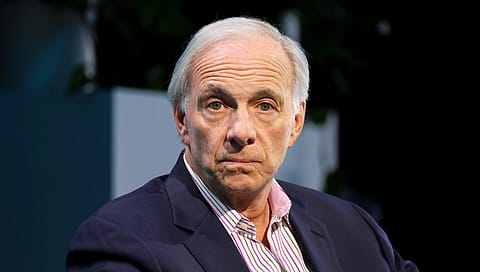Narendra Modi is the Deng Xiaoping of India: Ray Dalio
Ray Dalio, founder of Bridgewater Associates, believes that India is projected to see the strongest real growth over the next decade.

The founder of the globe’s biggest hedge fund, Bridgewater Associates with assets of over $124 billion, explains that India has the potential to become a global economic powerhouse, despite significant inequality and a relatively low manufacturing base. In an interaction with Fortune India, Dalio shares his views on India’s ability to balance relationships between global powers, and the importance of leveraging its strengths in services over manufacturing.
India is projected to have the highest expected growth rate over the next decade. However, significant inequality persists within the country. Could rapid economic growth without corresponding social infrastructure development exacerbate this inequality, potentially destabilising India’s long-term prospects?
It could, but the circumstances would have to be very badly managed to squander this opportunity.
India is in a unique geopolitical position, balancing relationships with both Western powers and rising Eastern ones like China. Could this balancing act give India a strategic advantage, or does it risk alienating key partners and diminishing its influence in global affairs?
India’s position of being between the two giants in their great power conflict gives it a great potential strategic advantage. History has shown, and logic makes clear, that neutral countries during great power conflicts are in a uniquely opportune position of being able to take advantage of the ability to deal with both sides to their advantage and do things that neither side is able to do. History shows that such neutral countries during great power conflicts do exceptionally well.
India’s low debt burden is cited as a positive factor for growth, but could India’s conservative approach to debt limit its ability to invest in large-scale infrastructure and social projects that might be necessary to sustain long-term growth and reduce inequality?
Low debt means that debt can be increased to fund good investments. Of course, if there is an anti-debt mentality that prevents making good investments to raise productivity, or a pro-debt mentality that uses the borrowed money in uneconomic ways, that produces problems. So, ultimately what the countries’ leaderships do to take advantage of their opportunities and deal with their challenges is what matters most.
Recommended Stories
India's share of manufacturing in the world is just about 3%, while China is at more than 30%. Given India's dominance in services and its relatively small manufacturing base, do you believe that India’s growth will be constrained by its inability to replicate China’s capital and energy-intensive manufacturing model, or could this services-led growth be an advantage in a future global economy that emphasises digital transformation?
Trying to compete with China’s manufacturing is a fool’s journey and that India’s most important focus should remain on improving domestic education and productivity internally and taking advantage of its inexpensive intellectual power in competing internationally.
If you were an active money manager today, would you consider setting up an India dedicated fund or will you continue to play India through the EM fund route. At what point will China outflows find their way to India?
India is where China was when I first went to China 40 years ago, soon after Deng Xiaoping came to power, and that Narendra Modi is the Deng Xiaoping of India. For that reason, if I were 40 years younger, I would build an understanding of and would contribute to the development of India’s markets the way I did in China. Said differently, I believe that India is a great place to build a deep understanding of and contribute to over the next 40 years.
(INR CR)